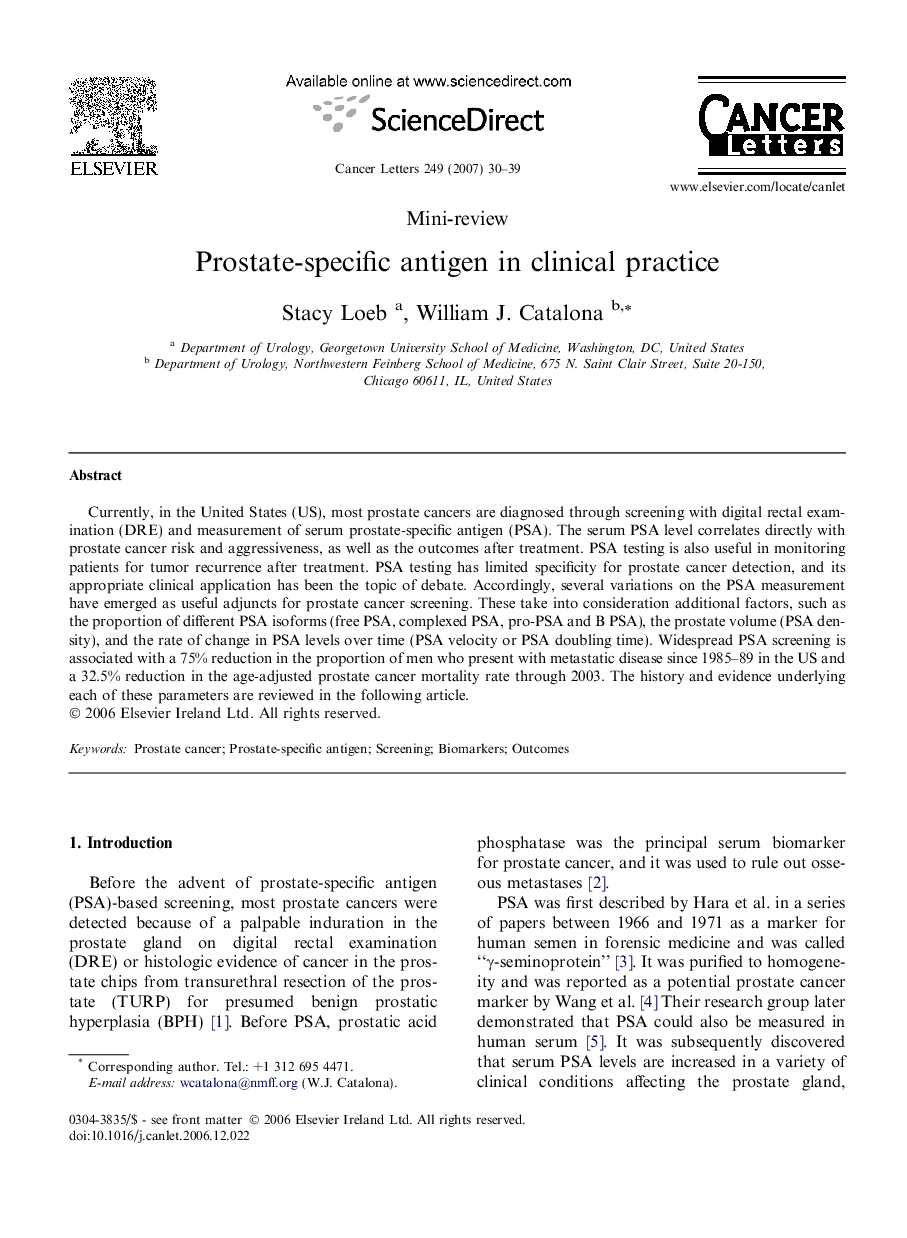| کد مقاله | کد نشریه | سال انتشار | مقاله انگلیسی | نسخه تمام متن |
|---|---|---|---|---|
| 2115364 | 1084591 | 2007 | 10 صفحه PDF | دانلود رایگان |

Currently, in the United States (US), most prostate cancers are diagnosed through screening with digital rectal examination (DRE) and measurement of serum prostate-specific antigen (PSA). The serum PSA level correlates directly with prostate cancer risk and aggressiveness, as well as the outcomes after treatment. PSA testing is also useful in monitoring patients for tumor recurrence after treatment. PSA testing has limited specificity for prostate cancer detection, and its appropriate clinical application has been the topic of debate. Accordingly, several variations on the PSA measurement have emerged as useful adjuncts for prostate cancer screening. These take into consideration additional factors, such as the proportion of different PSA isoforms (free PSA, complexed PSA, pro-PSA and B PSA), the prostate volume (PSA density), and the rate of change in PSA levels over time (PSA velocity or PSA doubling time). Widespread PSA screening is associated with a 75% reduction in the proportion of men who present with metastatic disease since 1985–89 in the US and a 32.5% reduction in the age-adjusted prostate cancer mortality rate through 2003. The history and evidence underlying each of these parameters are reviewed in the following article.
Journal: Cancer Letters - Volume 249, Issue 1, 28 April 2007, Pages 30–39